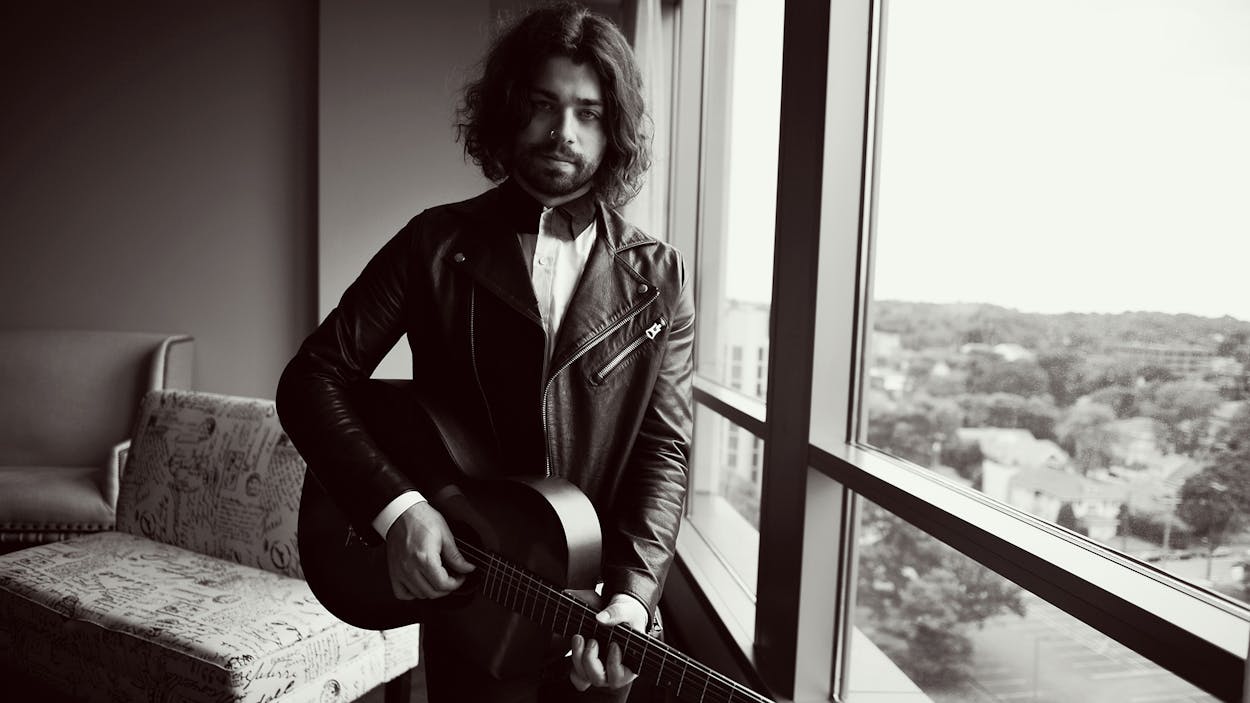There’s a story arc among Texas musicians that practically writes itself now: Guitar-slinging roughnecks find regional success and hitch it to Nashville, where they quickly find their warts-n’-all sound is at odds with the gloss of Music City.
At first glance, West Texas-born Rett Smith seems to be on the same trajectory. The blues-rocker recently moved to Nashville to cut his new EP, Oscuro, at Blackbird Studios. But despite the change of scenery, Smith seems resolute in preserving his authenticity. “It’s not about hot chicks and good times with your buddies on the lake,” he says of the new EP. “I would jump off a f—ing cliff if I wrote a song like that.”
Instead, Smith lays his soul bare in four barn-burning rockers featuring slide guitar licks that would make Billy Gibbons crack a smile. It’s decidedly grittier than the typical Nashville fare, a nod to Smith’s Texas upbringing. “I am definitely coming from that place of struggle that we all know, and I tried to expound on that,” he says. “I come from that hard-working West Texas idea of, ‘You gotta get that sh*t out.’”
Smith co-wrote and produced Oscuro himself, recording it live in the studio with minimal overdubs that capture the wild spirit of the tracks. A quick follow-up to last year’s debut EP, Tularosa, the new cut gives him a reason to stay on the road through the fall and winter. “The live side is really where my heart lies in this,” he says. “The songs in the studio, that felt great, but they live and die off of the live experience, and that’s what I personally live for.”
For Smith, Oscuro is about more than cutting some tunes and cashing a paycheck—it’s about self-expression. “If you’re gonna call yourself an artist and a songwriter, there’s a responsibility in that. You’ve got to be real with where you’re coming from,” he says. “Even from the days of Willie and Waylon, there’s a common thread you have to own up to.”
Smith seems safe from the countrypolitan influence of Nashville. His emphasis on staying true to his roots may make him a bit of an outcast in a city so concerned with churning out hits, but he doesn’t seem to mind. “I don’t have to consider the Nashville machine because I’m not a part of it anyway,” he says. “You can only have so much pop-country before it comes full circle.”






